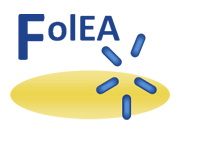This project is coordinated by IRD, Institut de Recherche pour le Développement
NUTRIPASS unit "Food and Nutrition Research in the Global South"
UMR Nutripass, 911 avenue Agropolis, BP 64501 34394 Montpellier Cedex, FRANCE
Christèle HUMBLOT , Coordinator
Tel : + 33 (0)4 67 41 62 48
Fax: + 33 (0)4 67 41 61 57
For the FolEA partners only: you can sign in to access the "private area", with more information on the project, and access to the documents.
A password is needed (contact Youna Hemery to get your login & password).
Work-package 2
WP2: Folate production by lactic acid bacteria in African and European cereal-based fermented foods
Leader : Dr Christèle Humblot (France)
Co-leader : Dr Per Saris (Finland)
The objectives of this WP are: i) to estimate the potential of folate biosynthesis by the microorganisms present in the CBFFs (yeasts and LAB), ii) to isolate LAB from the models of CBFFs for which no collection were already constituted, iii) to identify folate producing bacteria among the collection of LAB from the different CBFFs. We intentionally oriented more this work on LAB, as the role of yeasts in folate production has already been extensively studied.
This WP is structured in three Tasks:
Task 2.1: Metagenomic screening
The estimation of the potential of folate biosynthesis by the microorganisms responsible for the fermentation of CBFF will be implemented using metagenomic approach. Metagenomic is a technology in which all the genes in a microbiota can be sequenced ultimately, providing direct gene-functional information from uncultured micro-organisms.
Task 2.2: Isolation of LAB from the CBFF
The isolation of LAB from the model CBFFs will be performed only on the food samples for which no bacterial collections are available. For example, we have already have a LAB collection isolated from ben-saalga and characterised. For injera on the contrary, no LAB have been isolated yet. The identification of bacteria will be done by sequencing of 16S rRNA coding genes.
Task 2.3: Identification of folate-producing strains
To identify folate producing LAB, two strategies will be adopted depending on the bacterial collections. If it is an already existing LAB collection, a genetic screening using PCR will be realised on the DNA extracted from each strain, targeting the genes specific for folate biosynthesis. Then the synthesis of folate will be measured on the positive strains using the reference the microbiological method, based on the growth of the folate-dependant strainLactobacillus rhamnosus. If the bacterial collection has been done using a selection pressure on medium without folate, the measurement of folate (directly in the culture media) will allow the detection of folate-producing strains. The combination of cultural and non cultural methods will allow the estimation of microbial diversity of the different food models.
The expected results are to better understand the differences that could exist on the folate-synthesis metabolic pathways of the different microorganisms responsible for cereal fermentation. Furthermore, we expect to find several high folate-producing LAB.











